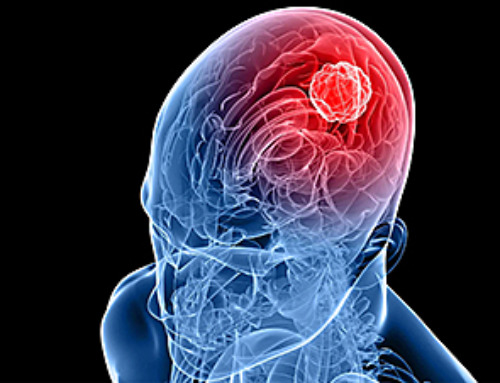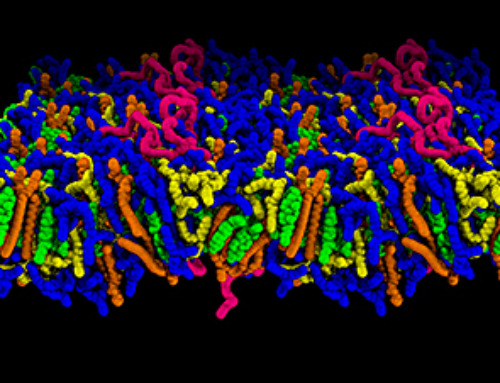Cedars-Sinai Cancer investigators have identified two promising new treatment options for men with recurrent prostate cancer—both of which helped patients live longer without their disease progressing than the current standard treatment. The results of their international Phase III clinical trial were published today in the New England Journal of Medicine.
“If these treatments are approved by the Food and Drug Administration, our results will be practice changing,” said Stephen Freedland, MD, associate director for Training and Education and the Warschaw, Robertson, Law Families Chair in Prostate Cancer at Cedars-Sinai, and lead author of the study. “In the study, both of these new options improved metastasis-free survival while preserving quality of life.”
Cancer of the prostate, a walnut-sized gland that helps make semen, will be diagnosed in 288,300 men in the U.S. in 2023, according to American Cancer Society estimates. For some, treatment may never be needed because they have a slow-growing form of the disease, but those with more aggressive prostate cancer are often first treated with surgery or radiation therapy.
“Unfortunately, in about a third of those patients, the cancer recurs within 10 years,” Freedland said.
Patients with aggressive recurrence are treated with androgen deprivation therapy (ADT), also known as hormone therapy, which reduces the patient’s production of the male sex hormone testosterone. Testosterone helps prostate cancer cells grow and spread, and the hormone therapy effectively reduces the growth-stimulating effects. But Freedland said ADT has two downsides: It doesn’t completely eliminate testosterone, and it can cause many side effects.
“When you go on ADT, the testosterone level in the blood is reduced, but not completely eliminated,” Freedland said. “And the concern is that the testosterone that remains may still be enough to stimulate tumor growth. Also, patients don’t love the idea of being on hormones.”
In this study of 1,068 prostate cancer patients from 244 sites in 17 countries, Freedland and fellow investigators tested two experimental interventions—one to address each of these issues.
In the randomized clinical trial, one-third of the patients received ADT plus a medication called enzalutamide, which blocks the effects of testosterone. Enzalutamide keeps any testosterone remaining in the blood from stimulating the growth of cancer cells.
Another third of the patients received enzalutamide alone. This option relied on the medication to block the effects of testosterone even though testosterone levels in the patients’ blood were not reduced.
“We wanted to see whether enzalutamide on its own was so effective that we didn’t need the ADT,” Freedland said.
The final group of patients received ADT alone, which is the current standard treatment.
Investigators found that the combination of ADT plus enzalutamide reduced the risk of metastasis or death by 58% over ADT alone. They found that enzalutamide alone reduced the risk of metastasis or death by 37% over ADT alone. Both treatments maintained quality of life relative to the ADT alone.
“While the combination therapy offers greater risk reduction, some men might prefer enzalutamide alone. It does a good job of preventing cancer spread or death, with different side effects that may be more acceptable for some men,” Freedland said.
The next step is for the makers of enzalutamide to apply for FDA approval, so the experimental therapy can come into wide use, Freedland said.
“Optimizing therapy for patients with aggressive recurrence after their prostate cancer is initially treated has been an unmet need,” said Dan Theodorescu, MD, Ph.D., director of Cedars-Sinai Cancer and the PHASE ONE Distinguished Chair. “The results of this trial point the way to two options which the study showed were more effective than current standard of care, giving these patients and their providers the opportunity to choose a potentially improved course of therapy that best meets their needs.”
More information: Stephen Freedland et al, Improved Outcomes with Enzalutamide in Biochemically Recurrent Prostate Cancer, New England Journal of Medicine (2023). www.nejm.org/doi/10.1056/NEJMoa2303974
News
New Molecule Blocks Deadliest Brain Cancer at Its Genetic Root
Researchers have identified a molecule that disrupts a critical gene in glioblastoma. Scientists at the UVA Comprehensive Cancer Center say they have found a small molecule that can shut down a gene tied to glioblastoma, a [...]
Scientists Finally Solve a 30-Year-Old Cancer Mystery Hidden in Rye Pollen
Nearly 30 years after rye pollen molecules were shown to slow tumor growth in animals, scientists have finally determined their exact three-dimensional structures. Nearly 30 years ago, researchers noticed something surprising in rye pollen: [...]
NanoMedical Brain/Cloud Interface – Explorations and Implications. A new book from Frank Boehm
New book from Frank Boehm, NanoappsMedical Inc Founder: This book explores the future hypothetical possibility that the cerebral cortex of the human brain might be seamlessly, safely, and securely connected with the Cloud via [...]
How lipid nanoparticles carrying vaccines release their cargo
A study from FAU has shown that lipid nanoparticles restructure their membrane significantly after being absorbed into a cell and ending up in an acidic environment. Vaccines and other medicines are often packed in [...]
New book from NanoappsMedical Inc – Molecular Manufacturing: The Future of Nanomedicine
This book explores the revolutionary potential of atomically precise manufacturing technologies to transform global healthcare, as well as practically every other sector across society. This forward-thinking volume examines how envisaged Factory@Home systems might enable the cost-effective [...]
A Virus Designed in the Lab Could Help Defeat Antibiotic Resistance
Scientists can now design bacteria-killing viruses from DNA, opening a faster path to fighting superbugs. Bacteriophages have been used as treatments for bacterial infections for more than a century. Interest in these viruses is rising [...]
Sleep Deprivation Triggers a Strange Brain Cleanup
When you don’t sleep enough, your brain may clean itself at the exact moment you need it to think. Most people recognize the sensation. After a night of inadequate sleep, staying focused becomes harder [...]
Lab-grown corticospinal neurons offer new models for ALS and spinal injuries
Researchers have developed a way to grow a highly specialized subset of brain nerve cells that are involved in motor neuron disease and damaged in spinal injuries. Their study, published today in eLife as the final [...]
Urgent warning over deadly ‘brain swelling’ virus amid fears it could spread globally
Airports across Asia have been put on high alert after India confirmed two cases of the deadly Nipah virus in the state of West Bengal over the past month. Thailand, Nepal and Vietnam are among the [...]
This Vaccine Stops Bird Flu Before It Reaches the Lungs
A new nasal spray vaccine could stop bird flu at the door — blocking infection, reducing spread, and helping head off the next pandemic. Since first appearing in the United States in 2014, H5N1 [...]
These two viruses may become the next public health threats, scientists say
Two emerging pathogens with animal origins—influenza D virus and canine coronavirus—have so far been quietly flying under the radar, but researchers warn conditions are ripe for the viruses to spread more widely among humans. [...]
COVID-19 viral fragments shown to target and kill specific immune cells
COVID-19 viral fragments shown to target and kill specific immune cells in UCLA-led study Clues about extreme cases and omicron’s effects come from a cross-disciplinary international research team New research shows that after the [...]
Smaller Than a Grain of Salt: Engineers Create the World’s Tiniest Wireless Brain Implant
A salt-grain-sized neural implant can record and transmit brain activity wirelessly for extended periods. Researchers at Cornell University, working with collaborators, have created an extremely small neural implant that can sit on a grain of [...]
Scientists Develop a New Way To See Inside the Human Body Using 3D Color Imaging
A newly developed imaging method blends ultrasound and photoacoustics to capture both tissue structure and blood-vessel function in 3D. By blending two powerful imaging methods, researchers from Caltech and USC have developed a new way to [...]
Brain waves could help paralyzed patients move again
People with spinal cord injuries often lose the ability to move their arms or legs. In many cases, the nerves in the limbs remain healthy, and the brain continues to function normally. The loss of [...]
Scientists Discover a New “Cleanup Hub” Inside the Human Brain
A newly identified lymphatic drainage pathway along the middle meningeal artery reveals how the human brain clears waste. How does the brain clear away waste? This task is handled by the brain’s lymphatic drainage [...]





















